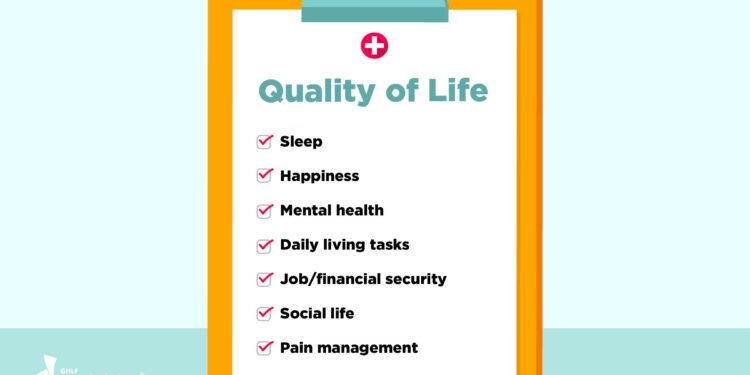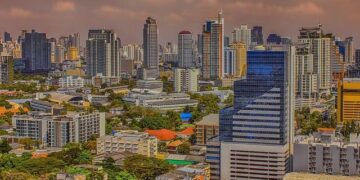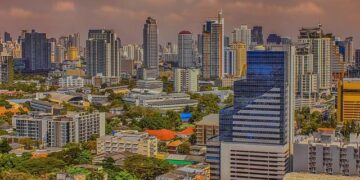In recent years, Thailand has witnessed a significant demographic shift as its population ages at an unprecedented rate. With projections indicating that by 2030, nearly one in four Thais will be over the age of 60, the implications for the country’s healthcare, economy, and social systems are profound. As this aging population grows, discussions surrounding quality of life have emerged as paramount. From access to healthcare and social support systems to opportunities for active engagement and community involvement, ensuring a high standard of living for older adults is not only a matter of policy but a crucial measure of a nation’s responsiveness to the needs of its citizens. This article delves into the challenges and solutions being considered to enhance the quality of life for Thailand’s elderly population, highlighting the urgent need for strategic planning in a rapidly changing societal landscape.
Enhancing Healthcare Accessibility for Thailand’s Aging Population
As Thailand’s population ages, addressing healthcare accessibility is becoming increasingly critical. Innovative approaches are required to accommodate the rising number of elderly citizens, particularly in rural areas where medical facilities are sparse. Policymakers are urged to consider the implementation of telemedicine services, which can bridge the gap between elderly patients and healthcare providers. This technology can enable remote consultations, reducing the need for arduous travel and ensuring timely medical attention. Additionally, enhancing public transportation options specifically for older adults can facilitate access to healthcare facilities, improving their overall well-being.
Incorporating community-based health programs also holds promise for enhancing healthcare delivery. Local initiatives could focus on preventive care, health education, and early diagnosis, as well as integrating traditional caregivers to provide support to older individuals. Mobile clinics have shown success in various regions, bringing essential health services directly to those in need. A collaborative effort among stakeholders-government agencies, non-profits, and community organizations-can help develop a sustainable framework that prioritizes elderly population health. Below is a table highlighting potential strategies to improve accessibility:
| Strategy | Description |
|---|---|
| Telemedicine Services | Remote consultations to minimize travel challenges. |
| Enhanced Public Transport | Improved transport options for easy access to healthcare. |
| Community Health Programs | Focus on preventive care and health education. |
| Mobile Clinics | Bringing essential services directly to elderly populations. |
Promoting Active Lifestyles and Community Engagement Among Seniors
As Thailand’s population ages, the importance of fostering active lifestyles among seniors has never been more critical. Engaging older adults in various activities not only enhances their physical health but also boosts mental well-being and social connections. Many communities are embracing a range of initiatives designed to integrate seniors more actively into local life. These programs often include:
- Fitness Classes: Tailored exercise programs that account for different abilities.
- Workshops and Learning Opportunities: Courses on technology, arts, and culture to stimulate the mind.
- Volunteer Programs: Opportunities for seniors to share their skills and expertise with younger generations.
- Social Clubs: Groups focused on shared interests, fostering friendships and reducing isolation.
Community engagement not only enriches the lives of seniors but also promotes intergenerational relationships that benefit all age groups. Local governments and organizations are stepping up to create a supportive infrastructure that encourages active participation. A recent initiative in several provinces features:
| Program | Description | Location |
|---|---|---|
| Active Aging Month | A month-long series of fitness and wellness events. | Bangkok, Chiang Mai |
| Cultural Exchange Program | Bringing together seniors and students for skill-sharing. | Pattaya |
| Outdoor Recreation Club | Regular outings to parks and nature reserves for exercise. | Phuket |
Such initiatives not only address the immediate needs of the aging population but also foster a culture where seniors feel valued and involved, ultimately enhancing the overall quality of life in their communities.
Strengthening Social Support Systems to Improve Mental Well-being
As Thailand faces the challenges of an aging population, bolstering social support networks has become imperative to enhance mental well-being across various demographics. The nation’s older adults are at a higher risk of experiencing isolation and mental health issues, often exacerbated by the loss of loved ones and shifting family dynamics. Establishing strong community frameworks can play a pivotal role in fostering connections among seniors. Such frameworks could include:
- Volunteer Programs: Engaging community members to offer companionship and support to the elderly.
- Peer Support Groups: Facilitating gatherings where seniors can share experiences and resources.
- Digital Engagement: Utilizing technology to connect those who may be physically distanced.
Innovative initiatives that prioritize mental health and social interaction are essential in reversing current trends of loneliness. Furthermore, local governments can enhance accessibility to mental health resources, ensuring they reach those who need them most. A recent survey conducted among seniors in urban areas of Thailand highlighted the importance of accessible services, revealing that:
| Resource Type | Importance (%) |
|---|---|
| Community Centers | 72 |
| Counseling Services | 65 |
| Social Activities | 80 |
These findings underscore a significant demand for structured support services that cater specifically to the mental health needs of the aging populace. By promoting these social support systems, Thailand can pave the way for not only improved quality of life among the elderly but also foster a more connected and resilient community.
To Conclude
In conclusion, as Thailand confronts the challenges posed by an aging population, prioritizing the quality of life for its elderly citizens has never been more critical. Policymakers, community leaders, and families must come together to ensure that the nation’s senior citizens can enjoy their later years with dignity, access to healthcare, and a supportive environment. With proactive measures and a commitment to fostering inclusive communities, Thailand has the opportunity to set a global standard in elder care, transforming potential challenges into avenues for growth and innovation. The path forward will require resilience and collaboration, but the well-being of the aging population ultimately reflects the strength of Thai society as a whole. As the country moves forward, a focus on enhancing the quality of life for all generations will be essential in building a brighter and more sustainable future.














